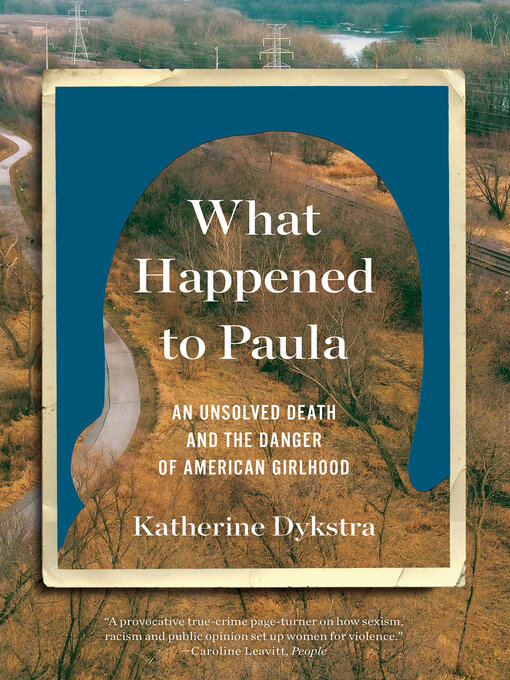A People Best Book of Summer
A New York Times Most Anticipated Book of the Summer
A riveting investigation into a cold case asks how much control women have over their bodies and the direction of their lives.
July 1970. Eighteen-year-old Paula Oberbroeckling left her house in Cedar Rapids, Iowa. Four months later, her remains were discovered just beyond the mouth of a culvert overlooking the Cedar River. Her homicide has never been solved.
Fifty years cold, Paula's case had been mostly forgotten when journalist Katherine Dykstra began looking for answers. A woman was dead. Why had no one been held responsible? How could the powers that be, how could a community, have given up? Tracing Paula's final days, Dykstra uncovers a girl whose exultant personality was at odds with the Midwest norms of the late 1960s. A girl who was caught between independence and youthful naivete, between a love that defied racially segregated Cedar Rapids and her complicated but enduring love for her mother, and between a possible pregnancy and the freedoms that had been promised by the women's liberation movement but that still had little practical bearing on actual lives. The more Dykstra learned about the circumstances of Paula's life, the more parallels she saw in the lives of the women who knew Paula and the women in Paula's family, in the lives of the women in Dykstra's own family, and even in her own life.
Captivating and expertly crafted from interviews with Paula's family and friends, police reports, and on-the-scene investigation, What Happened to Paula is part true crime story, part memoir, a timely and powerful look at gender, autonomy, and the cost of being a woman.



